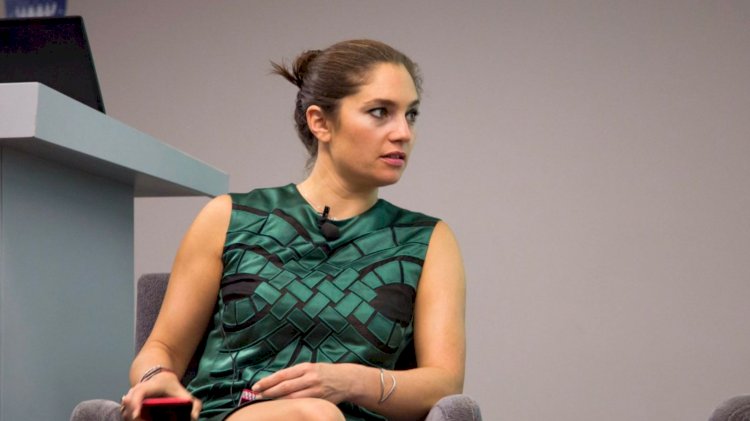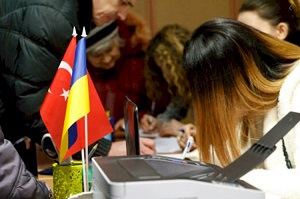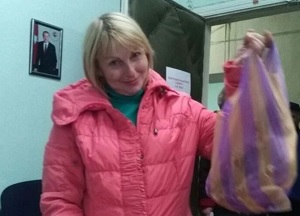Turkish Armenians are anxious despite gov’t guarantee
“Pari luys (‘good morning’ in Armenian), girls. If you are wearing a cross, keep it under your shirts today.

As the latest conflict unraveled and Armenia and Azerbaijan started bombing each other, a convoy of cars ornamented with Azeri flags toured around the Armenian Patriarchate in Istanbul, honking. Invoking the collective memory of the September 6-7, 1955 pogrom, the Armenian population living in the neighborhood spent that evening unsettled.
Every national conflict produces different externalities, some of them moving well beyond national borders. Since the latest clashes in Nagorno-Karabakh started, Turkish Armenians have been fretful. Traditionally, Turkey has defined its relations with Azerbaijan as “two states, one nation,” so it was only expected that Turkey would quickly put its weight behind Azerbaijan. Turkish TVs are flooded with footage of Turkish drones used by the Azeri army to bomb Armenian targets.
President Erdoğan stated that “Turkey continues to stand with the friendly and brotherly Azerbaijan with all its facilities and heart.”
Social networks in Turkey were quickly filled with warmongering messages, some of which have been very alarming. During a live interview I had with Rober Koptaş, an Armenian journalist, on my Youtube channel, comments like “the best Armenian is a dead Armenian” took over the screen.
In the last few years, the AKP government, led by the ambitions of its “strong” leader, has been building its image as a regional and even an emerging global leader through different conflicts and the supposed fixing of “historic injustices done to the Turkish people.” Wars in Syria, Libya, and tension in the Eastern Mediterranean have been presented to the Turkish public almost as a reincarnation of the victorious Ottoman past, and as a new show of Turkey’s power in line with its heroic history. Fighting on multiple fronts simultaneously has been used to reinvigorate nationalist spirits in the country with the ultimate goal of Erdogan’s promotion into one of the most successful leaders in the country’s history. The time of perpetual external crises is also a good way of obfuscating and distracting from real problems on the domestic front, like the declining quality of life in Turkey and a suffering economy.
Naturally, with the rise of nationalist spirits, a society is bound to experience extreme public rhetoric, and hate speech becomes almost a daily occurrence. In the case of today’s Turkey, the targets of public attacks and even blatant hate speech are pretty much anyone opposing the government’s policies and ways; in the last couple of years in particular, it has become almost impossible to publicly disagree with the ruling establishment’s decisions without being pushed to the “side of the traitors.” The language used in the attacks has become more racist and hateful with every new conflict Turkey engages in.
Turkish Armenians have been living in Anatolia for thousands of years; they were here even before the Turks. Besides language and religion, they have almost no ties to current Armenia or Armenians in Armenia. They are a well-integrated part of Turkish society. However, since the minorities of Turkey have been a sort of a taboo from the early days of Turkish Republic due most often to unreasonable fears of disintegrationist tendencies, the average Turk does not really know much about Anatolian Armenians.
As the latest conflict unraveled and Armenia and Azerbaijan started bombing each other, a convoy of cars ornamented with Azeri flags toured around the Armenian Patriarchate in Istanbul, honking. Invoking the collective memory of the September 6-7, 1955 pogrom, the Armenian population living in the neighborhood spent that evening unsettled.
AKP spokesperson Ömer Çelik made a statement saying they would “never allow some circles to threaten or harass the Armenian citizens of the Republic of Turkey, over social media or other platforms.” He also added that, “Turkey is a safe country. Turkey has rule of law. The Republic of Turkey will never allow discrimination among its citizens.”
The ruling spokesperson’s words were unfortunately hardly soothing to the Armenian population of Istanbul. The church moved all its meetings to online platforms. My friend from the beginning of the piece advised her mom to stay at home and not go out unless absolutely necessary. The aggressive reflex that brought people to the streets and fear to the Armenian community is not something created with one statement, and as such will not be able to be stopped with one statement. If they are serious about preventing these disturbing occurrences in the future, the government will have to rethink its overall strategy of saturating the public discourse with aggressive nationalist zeal, and turn to all of its citizens with solutions for the problems that are burdening for all, regardless of ethnicity.
DUVAR ENGLISH







































